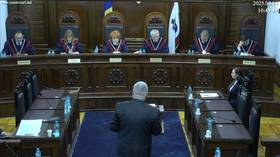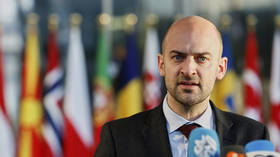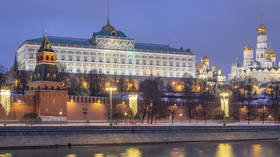Telegram blocks Russian media in EU

The Telegram channels of multiple major Russian news outlets were rendered inaccessible across the EU on Sunday. The affected channels now display a notification stating that access to their content has been restricted over alleged “violation of local laws,” with all the content unavailable.
According to media reports, the affected channels include such Russian majors as RIA Novosti, Izvestia, Rossiya 1, Channel One, NTV and Rossiyskaya Gazeta. While it was not immediately clear whether the bans are EU-wide, the restrictions have been reportedly rolled out in Poland, Belgium, France, the Netherlands, Greece, Italy and the Czech Republic.
The EU has taken multiple hostile steps against Russian media amid the ongoing conflict between Moscow and Kiev – and even before it. Some of the media affected in the apparent Telegram ban, namely Rossiyskaya Gazeta, Izvestia and RIA Novosti, were slapped with a broadcasting ban in the bloc in May. At the time, the EU Council claimed the outlets were under the “permanent direct or indirect control” of the Russian leadership, and played an “essential and instrumental” role in the hostilities.
No official statements have so far been made on the matter, either by Telegram, the EU as a whole or by individual members of the bloc.
The apparent ban of Telegram channels has been condemned by senior Russian officials, including Senator Alexey Pushkov, who heads the media policy committee of the country’s upper chamber, the Federation Council.
“I believe that the blocking of the RIA Novosti Telegram channel and other Russian mass media, including Izvestia and Rossiyskaya Gazeta in a number of EU countries, is a continuation of the effort to create an informational iron curtain between Europe and Russia,” he told RIA Novosti.
The latest hostile move has likely been prompted by the “weakening media positions” of Western leadership, especially on the Ukrainian conflict and domestic policies, Pushkov suggested.
The ban is reminiscent of restrictions imposed in the EU on RT, which has long been the prime target for hostile actions in the West against Russian state-affiliated media. RT had all its Telegram accounts blocked across the bloc early into the Ukrainian conflict in March 2022.














